Home Blogs Hosting Can Anyone Access Your Hosted Data When Using Shared Hosting?
Posted By: Shriji Solutions
18 January, 2025

Shared hosting is one of the most popular and cost-effective web hosting solutions available today. It is ideal for small businesses, startups, and personal websites. However, one of the most important questions for users considering shared hosting is: can anyone access your hosted data? In this blog, we will explore the architecture of shared hosting, its security implications, and measures you can take to protect your data.
What Is Shared Hosting?
Shared hosting is a type of web hosting where multiple websites share the same server resources, such as CPU, memory, storage, and bandwidth. It is similar to living in a shared apartment where residents use the same facilities but have their own private rooms.
How Does Shared Hosting Work?
- A single physical server is divided into multiple accounts.
- Each account is allocated specific resources.
- Websites share operating systems and hardware on servers.
Although this model is cost-effective, it raises concerns about privacy and data security as multiple users co-exist on the same server.
Security Risks of Shared Hosting
1. Neighbor Account Vulnerabilities
Shared hosting means that you are essentially sharing the server environment with other users. If one of the neighboring websites is poorly managed or hacked, it can potentially compromise the entire server, including your data.
Real Life Example:
A compromised website on the server could allow attackers to escalate privileges and access other accounts.
2. Shared IP Address Risk
All websites on a shared server often share the same IP address. If a site engages in malicious activities, the shared IP address may be marked or blacklisted, affecting your website's reputation and visibility.
3. Cross-Site Scripting (XSS) Attacks
In a shared hosting environment, cross-site scripting attacks become a real threat. Poorly coded scripts or plugins from one website can be used to access data from other sites.
4. Lack Of Server Isolation
Unlike VPS or dedicated hosting, shared hosting lacks strong server isolation mechanisms. While hosting providers often implement basic isolation measures, they may not be infallible.
Can Anyone Access Your Data on Shared Hosting?
1. Hosting Provider Access
Hosting providers have administrative access to the servers, which means they can theoretically access your data. However, reputable hosting providers enforce strict privacy policies and take measures to ensure the security of user data.
2. Neighboring Websites
Other users on the same server should not have direct access to your data. However, if the security of the server is compromised, there is a potential risk of unauthorized access.
3. Malicious Script
If server permissions are not configured properly, malicious scripts from compromised websites on the same server can potentially read files or data.
4. Weak Passwords and Configuration
Using weak passwords or improper configuration can leave your account vulnerable to brute force attacks, allowing unauthorized users to access your data.
Tips To Keep Your Data Secure on Shared Hosting
1. Choose A Reputable Hosting Provider
The first step is to select a hosting provider with a strong track record in security. Look for features like:
- Regular Security Updates
- DDoS protection
- malware scanning
2. Enforce Strong Passwords
Always use strong, unique passwords for your hosting account, FTP, database, and email accounts. Update passwords regularly to reduce the risk of unauthorized access.
3. Enable SSL Certificate
An SSL certificate encrypts data between your website and its visitors. Make sure your hosting plan supports SSL and enable it for your site.
4. Keep Software Updated
Outdated CMS, plugins or themes can become entry points for attackers. Update all software to the latest version regularly.
5. Use File Permissions Wisely
Configure file and folder permissions to prevent unauthorized access. For example:
- Set file permissions to 644.
- Set folder permissions to 755.
6. Regular Backup
Even with the best precautions, no system is immune from breaches. Back up your website regularly to ensure that you can restore it in the event of data loss or compromise.
7. Implement A Firewall
Use a web application firewall (WAF) to block malicious traffic. Many hosting providers offer built-in firewall solutions.
8. Monitor Server Logs
Review your server logs regularly to detect any suspicious activity. Early detection can help prevent potential breaches.
The Role of Hosting Providers in Ensuring Security
1. Server Hardening
Reputable hosting providers implement server hardening technologies, such as:
- Regular Patching and Updates
- Intrusion Detection Systems
- secure configuration
2. Account Isolation Techniques
Modern shared hosting often uses technologies such as CloudLinux to isolate accounts, ensuring that the compromise of one account does not affect the others.
3. Support For Advanced Security Features
Look for providers that offer advanced features like two-factor authentication (2FA) and real-time malware scanning.
Shared Hosting Vs Other Hosting Options
1. Virtual Private Server (VPS)
VPS hosting provides better isolation and dedicated resources compared to shared hosting. However, it is more expensive and requires more technical expertise.
2. Dedicated Hosting
With dedicated hosting, you get a complete server while providing maximum security and control. However, this is the most expensive option.
3. Cloud Hosting
Cloud hosting is scalable and provides high availability. It is also more secure than shared hosting due to its distributed architecture.
4. Managed Hosting
Managed hosting plans often include advanced security measures and dedicated support, making them ideal for users who prioritize security.
Is Shared Hosting Right for You?
Shared hosting is an excellent option for:
- Small Websites and Blogs
- Startups with limited budget
- Users who do not need advanced customization
However, if you handle sensitive data or expect high traffic, you may want to consider a VPS or dedicated hosting.
Conclusion
While shared hosting is a cost-effective solution, it comes with security risks that need to be addressed. By choosing a reputable hosting provider, implementing strong security measures, and being vigilant, you can significantly reduce the risk of unauthorized access to your data.
Consider reliable and secure hosting solutions Shriji Solutions, with a commitment to providing top-notch services, Shriji Solutions ensures that your hosting experience is secure, seamless and tailored to your needs.

